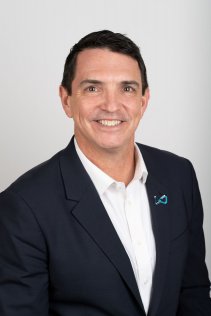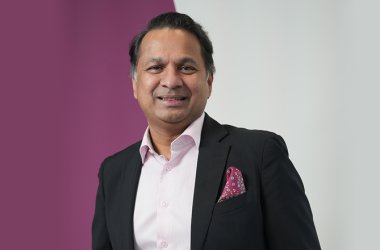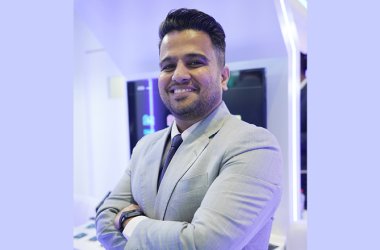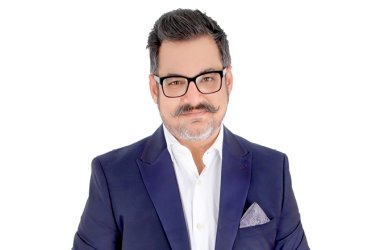CNME Editor Mark Forker spoke to Scott Peterson, Chief Revenue Officer, at Mitel, to find out how the global unified communications leader is positioning itself to capitalise on the opportunities that have arisen from a hybrid work environment – and the importance of maintaining culture in the new world of work.

It has been well documented over the last number of months that the way in which we work has changed forever as a direct consequence of the ongoing global COVID-19 pandemic.
As a leader in the unified communications space Mitel has played a critical role in helping businesses maintain continuity during the crisis as employees moved to a world of remote working, and as Peterson points out businesses need to embrace a hybrid future for their workplace as things will not return to the way it was pre-COVID.
“It’s clear that work as we knew it will never be the same again. People that work for companies that have physical offices will not be coming to those offices every day, so employers really need to start thinking about a hybrid or blended environment, now what that looks like in each market globally, or even in certain industry verticals will be varied. But what is clear is that it has changed forever, and will be for the remainder of our lifetime”, said Peterson.
Mitel has been banging the drum over the last number of the years in relation to the benefits collaboration tools can have on employee productivity and efficiency within enterprises. The pandemic has inevitable resulted in a surge in the adoption of these types of solutions and Mitel has been on hand to meet the new market demands and requirements.
“From a Mitel perspective it represents a great opportunity, because we’ve been talking for a number of years about the need to use collaboration tools to communicate more effectively inside of businesses, but also to communicate more securely with key customers, key suppliers and others within our ecosystem”, said Peterson.
He added that in many ways their solutions are best designed for this new hybrid workplace environment but stressed that they will not rest on their laurels.
“We are going to stay nimble, because things evolve and change so quickly market-to-market, and this may not be the last pandemic we face in our lifetime either, so it’s imperative you stay agile and nimble”, said Peterson.
Creating that culture within your organisation is a key component in ensuring success, but a major challenge for many companies has been how do you expose your newly hired employees to that culture when working in a remote environment.
“I think that first and foremost during times like this culture is a real differentiator, and people that feel safe, valued and trusted are more likely to continue to perform at really high levels and be able to work with their teams using non-traditional modalities. I can only imagine how difficult it regardless how good a culture is at a company to be a new employee during this time. What we have tried to implement at Mitel is firstly focus on employee safety, and then be emphatically clear with our employees that we understand they are under an incredible amount of stress, pressure and anxiety and we want to provide them with tools to deal with that”, said Peterson.
Peterson believes that in the current climate the question of a companies’ culture has become even more paramount.
“At Mitel, once our employees felt comfortable, only then did we talk about productivity and the ways that they can be the most effective employee that they can be. That’s been a big advantage for us, and I have to give a lot of credit to our HR team and other senior leaders, who are really focused on culture and that has allowed us to come through this in a very positive fashion, and I think the current climate makes culture even more important than it was before the COVID-19 crisis”, said Peterson.
There has been a lot of new trends that have been borne out of the COVID-19 crisis and some industry norms in the IT industry have been changed and altered fundamentally.
In our candid discussion Peterson outlined a number of emerging trends that he sees coming to fruition in the next 12 months in addition to the here to stay hybrid working model. One of the trends he sees coming are in relation to the mindsets of some enterprises, who he believes are beginning to think more expansively.
“In addition to the hybrid work model, which we’ve already addressed in the earlier part of our discussion, there are some other trends that have emerged as a consequence of COVID-19 that look like they are here to stay. We’re seeing mid-sized companies and even smaller companies thinking more expansively about what we would offer in terms of contact centre solutions, such as more sophisticated call routing and flows to make sure that employees that serve customers and partners can be reached, and can have effective and secure communication tools”, said Peterson.
The dynamic Mitel executive also outlined how during the COVID-19 crisis there had been a huge market demand for flexibility in relation to communication, reiterating his earlier point regarding Mitel’s desire to remain nimble as the market continues to evolve.
“We used to think of those call centre applications as more enterprise, but what has also emerged during COVID is that need for the flexibility of communication and the need to be nimble to make sure your employees can be responsive to a customer need, or a concern that pops up. From a traditional telepathy perspective that is really blending with call centre flows versus just basic communication today”, said Peterson.
Peterson concluded a fascinating interview and insight into Mitel’s perspective on culture, the future of work and its strategy to remain nimble by highlighting one of key trend that has been elevated of late, and that is application integration.
“I think the other trend that is likely to be here for the foreseeable future is the increased need for more efficient application integration, and we’ve been very focused on that. We want our solutions to be very easy and seamless for our customers to integrate with other ERPs, CRMs, or any other solutions that they may have”, said Peterson.





